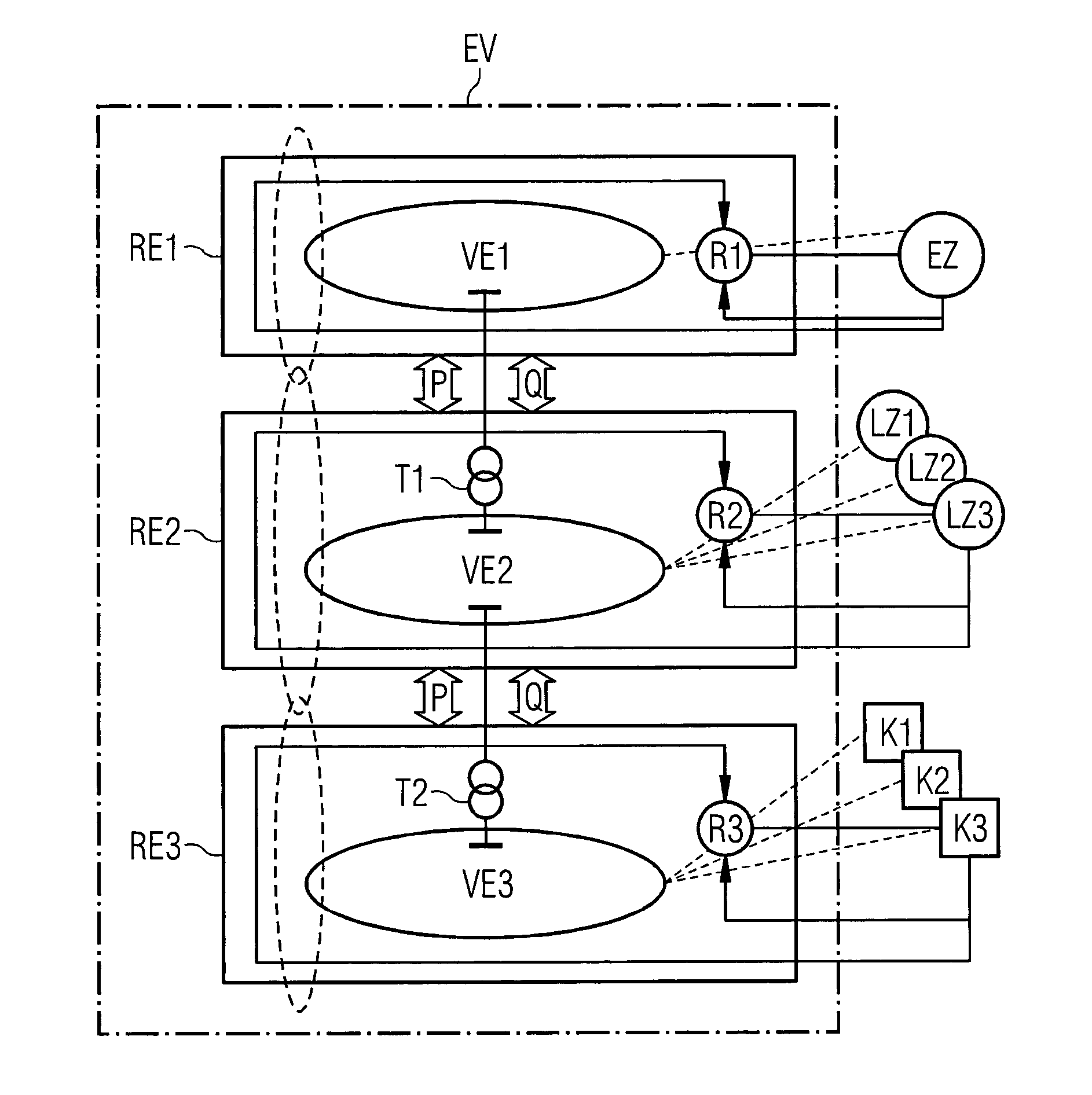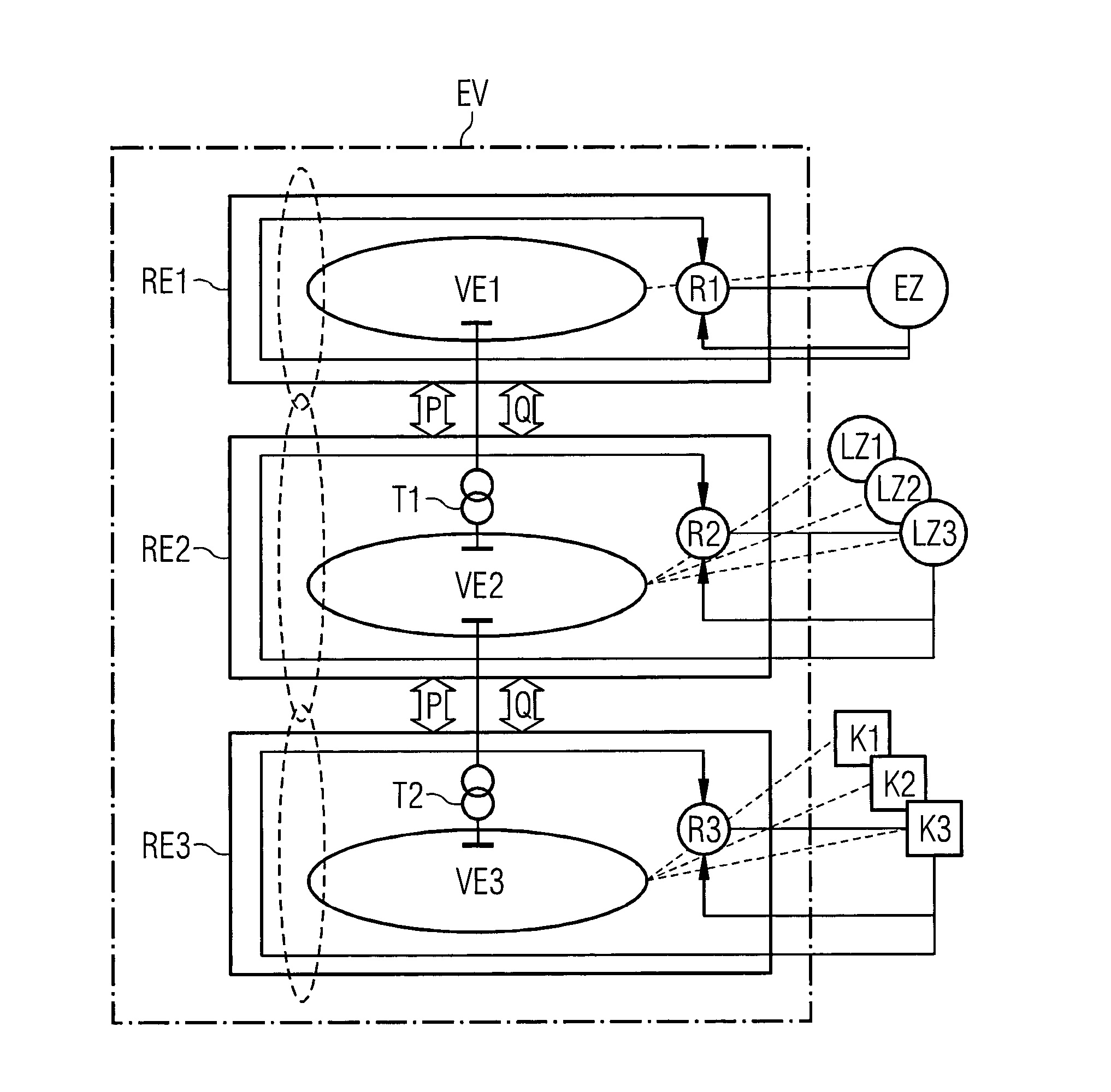Method for Regulating a Power Supply System
a power supply system and power supply technology, applied in transmission systems, dc source parallel operation, energy industry, etc., can solve the problems of decentralized power generation, less plannable energy production from wind power, solar energy and to a small extent also hydropower, and problems for the operation safety and reliability of the power grid. , to achieve the effect of simple and efficient, without major cost/complexity
- Summary
- Abstract
- Description
- Claims
- Application Information
AI Technical Summary
Benefits of technology
Problems solved by technology
Method used
Image
Examples
Embodiment Construction
[0023]FIG. 1 schematically illustrates a typical power grid EV. This power grid EV has three supply levels VE1, VE2, VE3. A high-voltage transmission level is provided as the topmost or first supply level VE1. A second or middle supply level VE2 is implemented as a medium-voltage distribution level and a low-voltage or secondary distribution level is provided as the third or lowest supply level.
[0024]At each of these three supply levels VE1, VE2, VE3, energy is fed into the power grid EV decentrally via respective typical power generators EZ, LZ1, LZ2, LZ3, K1, K2, K3 at the respective supply level VE1, VE2, VE3. At the first supply level, i.e. the transmission level VE1, energy produced by large power generators EZ such as e.g. large hydroelectric power plants, thermal power plants or large wind farms is fed into the power grid. As well as larger consumers (e.g. factories, hospitals, etc.), regional or local power generators LZ1, LZ2, LZ3 such as e.g. small hydroelectric power plan...
PUM
 Login to View More
Login to View More Abstract
Description
Claims
Application Information
 Login to View More
Login to View More - R&D
- Intellectual Property
- Life Sciences
- Materials
- Tech Scout
- Unparalleled Data Quality
- Higher Quality Content
- 60% Fewer Hallucinations
Browse by: Latest US Patents, China's latest patents, Technical Efficacy Thesaurus, Application Domain, Technology Topic, Popular Technical Reports.
© 2025 PatSnap. All rights reserved.Legal|Privacy policy|Modern Slavery Act Transparency Statement|Sitemap|About US| Contact US: help@patsnap.com


